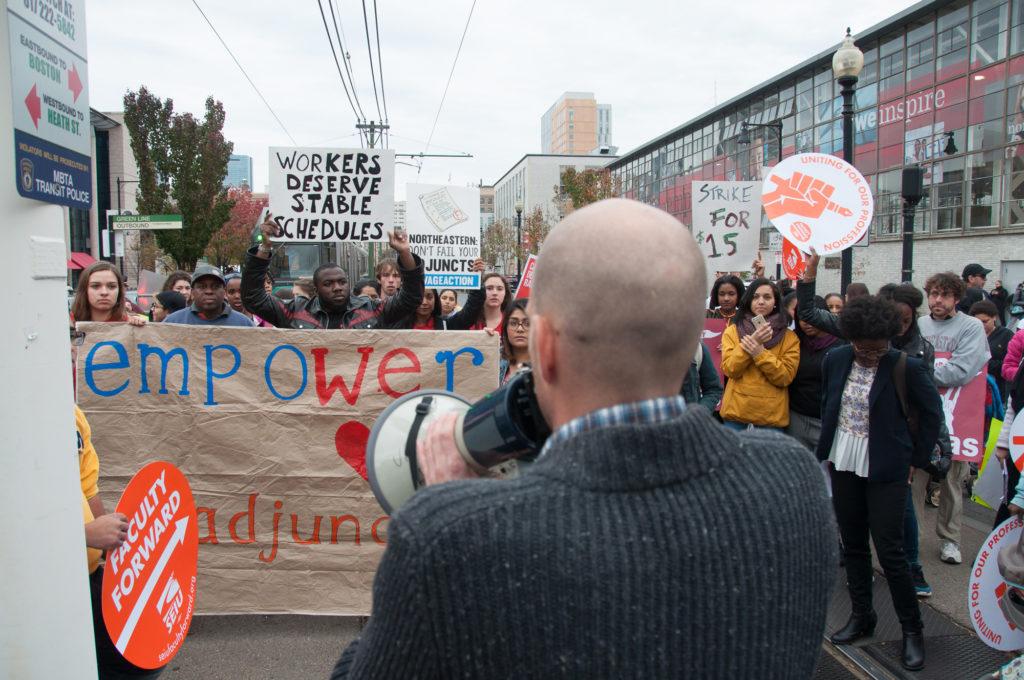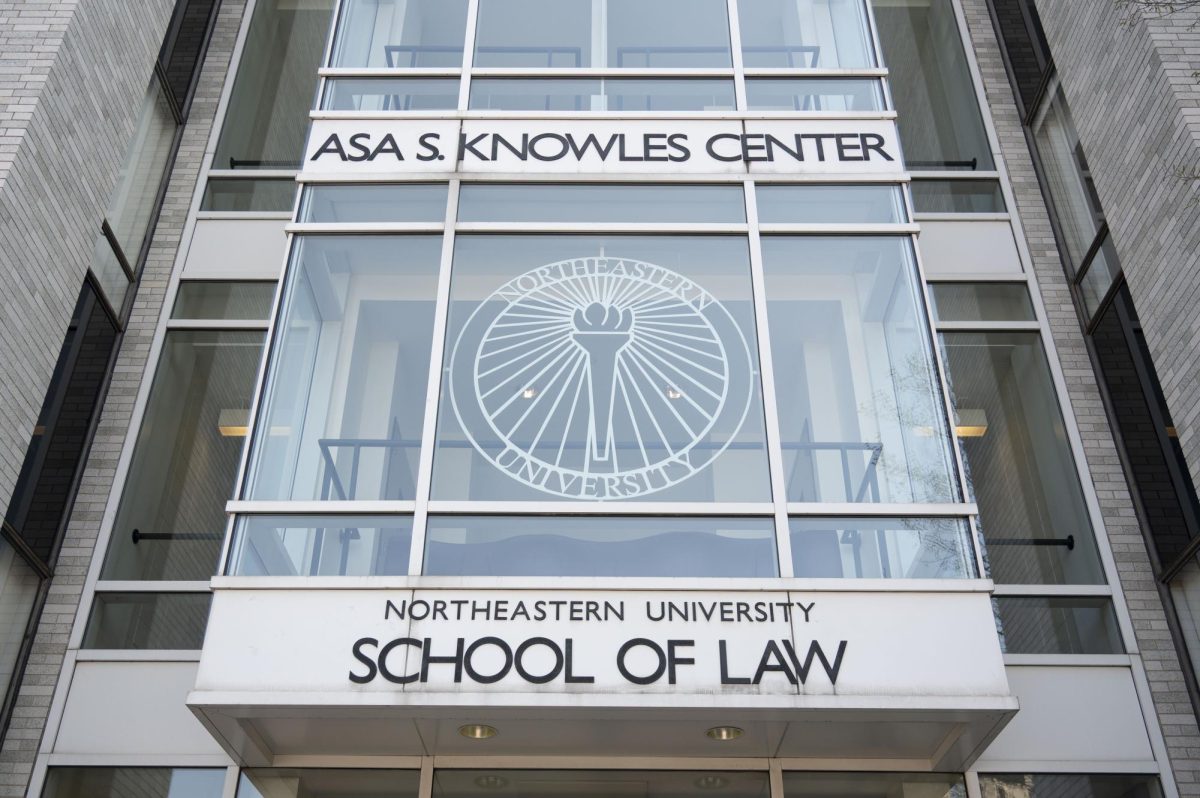On Jan. 14, it was announced that Northeastern’s administration had reached a contract agreement with adjunct faculty. The announcement came almost two years after adjuncts voted to unionize and five days before a planned one-day strike meant to highlight their growing frustration with a perceived lack of progress in the negotiations.
It’s a relief our teachers are no longer engaged in what was an exhausting effort to secure a contract. But the fact that it took so long points to serious flaws in the administration’s moral quality. Employees at an institution as profitable as this one – in 2014, the school had an endowment of over $713 million – should never have had to bargain and beg to be paid more than poverty wages in the first place. What our adjuncts were asking for was not that complicated: wages that reflect the strenuous work being done and ones that aren’t remarkably lower than those of full-time faculty; access to benefits such as health insurance and retirement plans; and job security, giving adjuncts the ability to plan for the future and not having to live from semester to semester. Obtaining rights as basic as these should not be like pulling teeth. Yet the university dragged its feet throughout the entire process. No amount of slick language on the part of the administration can change the fact that if not for the determination of both adjuncts and student activists, the university would have continued to take advantage of adjuncts indefinitely.
In an email announcing the new contract, James Bean, provost and senior vice president for academic affairs, said, “The agreement was reached after the university made it clear to union leaders that their proposed work stoppage next week would not have any impact on the university’s final offer.” The email goes on to say that the new contract prohibits strikes and picketing for as long as the contract is in place. These strategies have always been the sole advantage workers have against their employers. To take them away shifts the balance of power between adjuncts and administration from unbalanced to completely one-sided. It’s hard to see why the university would insist on including that provision if not to restrict adjuncts’ capacity to advocate for themselves.
In his email, Bean claims this measure will “ensure that the faculty’s focus remains where it should: on student learning.” This is an act of pure manipulation by the administration. To insinuate that going on strike would demonstrate a lack of commitment to their students insults adjuncts and diminishes their cause. Justice for adjuncts equates to a better education for students. Lack of resources for instructors trickles down to have negative effects on those receiving instruction, something the administration doesnt seem to understand.
Adjunct instructors are an indispensable part of the university, but the administration, its fair to say, only changed its shameful policies regarding adjuncts because it got caught. Who knows what other devious practices the university employs, only because up until this point it’s been able to get away with them? Students should endeavor to find out, and the university should not object to such a scrutiny.
An administration that values its students and employees over profits should have nothing to fear.
– Audrey Cooney is a sophomore journalism major.
Photo by Brian Bae









